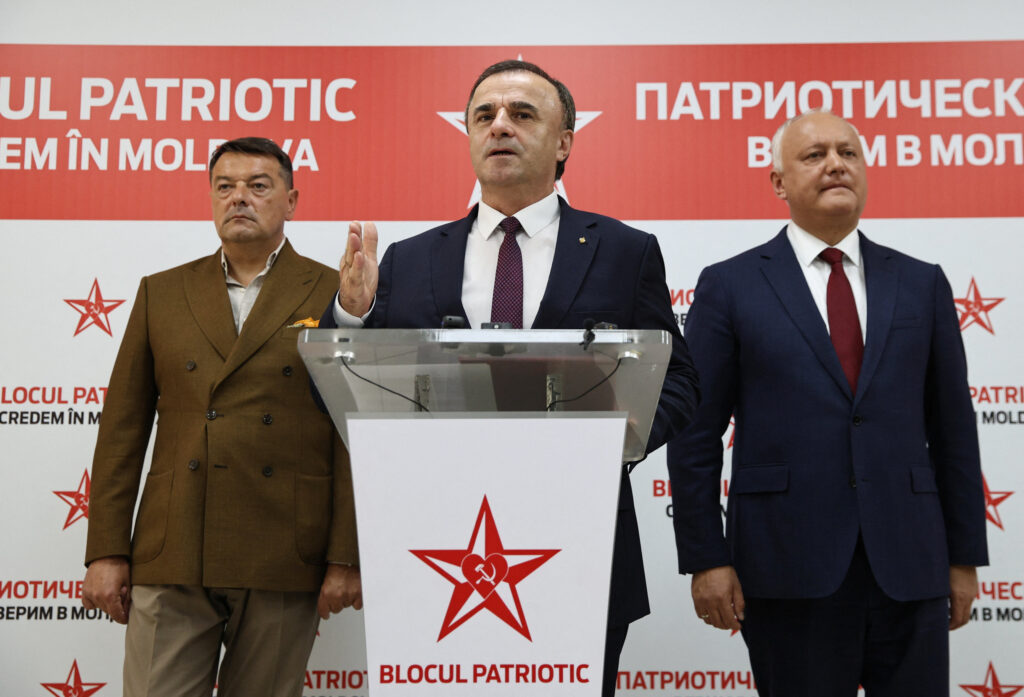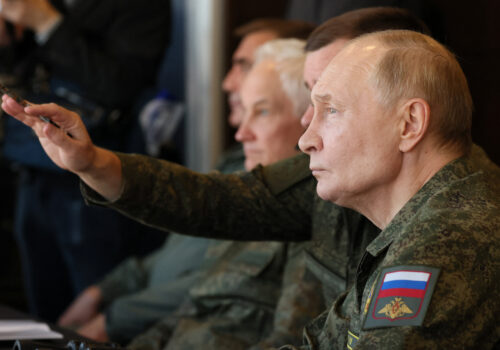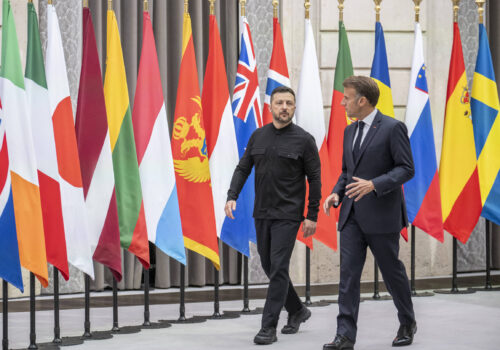Moldova is raising the alarm over escalating Russian interference as the country approaches a crucial geopolitical crossroads. On September 28, Moldova’s pro-Western government will face a parliamentary election amid widespread allegations of Kremlin cyberattacks, propaganda, and various other Russian attempts to influence the outcome of the vote. If pro-European parties lose their majority, Moldova’s Western integration could stall.
The implications of an election victory for pro-Russian forces would extend far beyond Chisinau. Moldova shares a long border with Ukraine, while the two countries are currently on a joint EU accession track. A Kremlin-friendly government in Moldova could potentially derail EU integration for both nations, while also creating a significant new security threat on Ukraine’s southwestern frontier. The coming vote is therefore an important test of Russia’s ability to reassert its influence and a potential landmark moment for the wider region.
Stay updated
As the world watches the Russian invasion of Ukraine unfold, UkraineAlert delivers the best Atlantic Council expert insight and analysis on Ukraine twice a week directly to your inbox.
Allegations of Russian interference have become a routine feature of Moldovan elections in recent years. During the country’s 2024 presidential election, the Kremlin reportedly spent $217 million funding Russian proxies, representing nearly 1 percent of Moldova’s GDP. Despite these efforts, incumbent Maia Sandu narrowly defeated pro-Russian candidate Alexandr Stoianoglo.
Russia is now accused of escalating its interference operations, with Moldovan President Sandu warning recently of an “unprecedented” Kremlin campaign that includes party financing, cyberattacks, and disinformation. These efforts reportedly expand beyond Moldova itself and are targeting the Moldovan diaspora, which played a key role in Sandu’s 2024 election win.
Moscow’s main goal is to boost support for pro-Russian parties including Stoianoglo’s Alternative Bloc and the Socialist-leaning Patriotic Bloc. There are also claims that the Kremlin’s plans extend beyond the ballot box. The Moldovan authorities reportedly detained dozens of suspects on Monday as part of an ongoing probe into an alleged Russian-backed plot to destabilize the country around this weekend’s pivotal parliamentary election.
Recent election forecasts position Sandu’s PAS party in first place but without sufficient support to govern alone. PAS is expected to receive around 25 percent of the vote, which would be enough to deliver a plurality but not an outright majority of seats. The most likely scenario at this stage of the campaign may be a coalition government led by PAS and featuring one or more of the pro-Russian parties. This would almost certainly undermine Moldova’s European integration.
Eurasia Center events

Kyiv will be watching the Moldovan vote closely. Ukraine’s 1,222 kilometer border with Moldova has been quiet since the beginning of Russia’s full-scale invasion more than three years ago. However, this tranquility cannot be taken for granted. Moldova is home to Transnistria, a Kremlin-backed breakaway region that currently hosts around 1,500 Russian soldiers along with large supplies of Soviet-era military equipment.
According to Moldovan intelligence assessments, Russian President Vladimir Putin wants to reinforce Transnistria by sending an additional 10,000 troops. If a more Moscow-friendly government takes power in Moldova, this may become feasible. Ukraine would then be forced to divert precious military resources from other fronts to counter the mounting Russian threat coming from across the Moldovan border. In particular, a reinforced Russian troop presence in Transnistria would directly threaten nearby Odesa, Ukraine’s main port city and the country’s maritime lifeline to global markets.
The coming vote could also shape the European aspirations of Moldova and Ukraine. Both countries have been granted EU candidate status in recent years. Officials in Brussels have made clear that the two bids are linked and will be reluctant to advance one country without the other. A pro-Russian victory in Chisinau could therefore undermine Kyiv’s momentum while placing Moldovan EU ambitions in doubt. Moldova’s pro-Western politicians have stressed this potential outcome if they lose control of parliament.
For Russia, the Moldovan vote is an opportunity to push back against Western influence in the former Soviet Empire and demonstrate that the invasion of Ukraine has not deprived Moscow of its ability to dominate the region. At present, Putin is confronted with a mixed picture. Georgia’s Kremlin-friendly government has effectively stalled the country’s EU integration, while nearby Armenia has recently began the EU accession process.
While Russia’s objectives in Moldova appear obvious, there is less clarity regarding the Western position. In late 2024, Brussels committed nearly $2 billion in aid to bolster Moldova’s economic security and thwart Russian influence. This year, however, the United States has shuttered offices charged with combating Russian disinformation, while also slashing funding for democracy assistance programs in Eastern Europe.
This week’s Moldovan parliamentary election is part of the escalating confrontation between Russia and the West. A pro-Kremlin victory could significantly impact the war in Ukraine and undermine EU integration momentum in both Chisinau and Kyiv. Amid growing signs of disunity between Brussels and Washington, Putin may sense that he currently has a window of opportunity to secure a meaningful success in a country that is small in size but strategically important for the wider region.
Aidan Stretch is a freelance journalist living in Ukraine.
Further reading
The views expressed in UkraineAlert are solely those of the authors and do not necessarily reflect the views of the Atlantic Council, its staff, or its supporters.

The Eurasia Center’s mission is to enhance transatlantic cooperation in promoting stability, democratic values, and prosperity in Eurasia, from Eastern Europe and Turkey in the West to the Caucasus, Russia, and Central Asia in the East.
Follow us on social media
and support our work
Image: Leader of Moldova's Party of Socialists Igor Dodon, leader of the Future of Moldova Party Vasile Tarlev and secretary of the central committee of the Communist Party Konstantin Starysh attend a press conference ahead of the upcoming parliamentary elections in Chisinau, Moldova. September 22, 2025. (REUTERS/Vladislav Culiomza)





